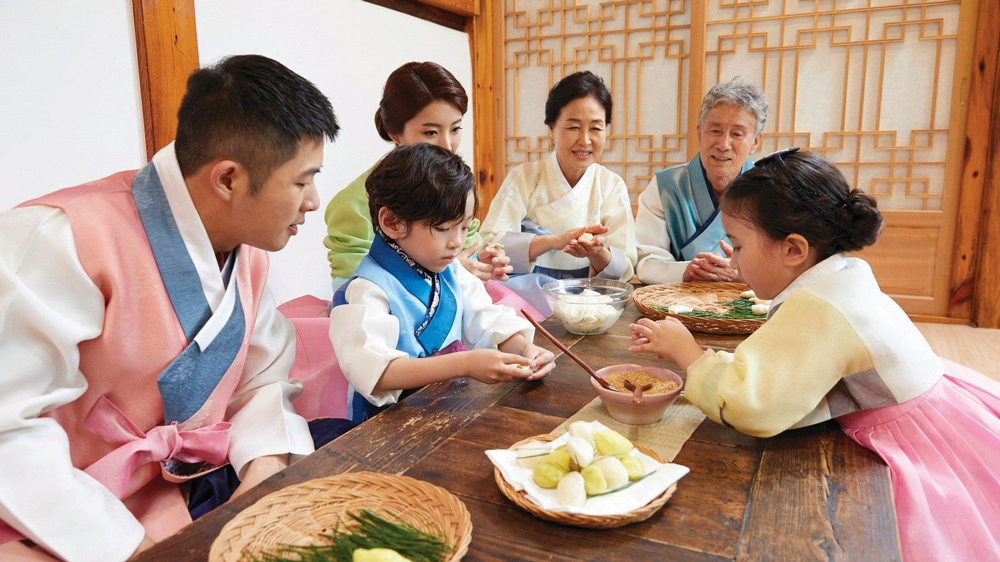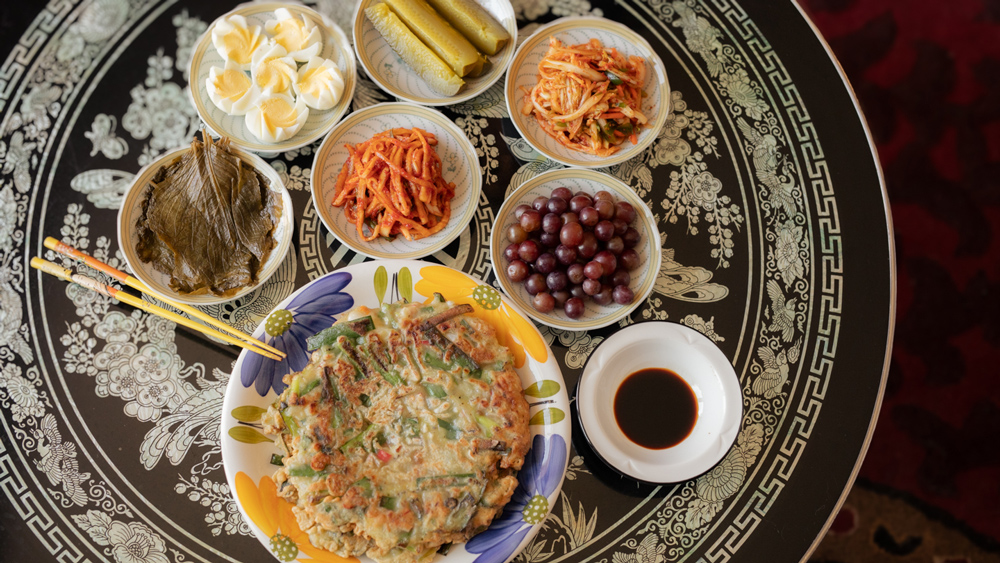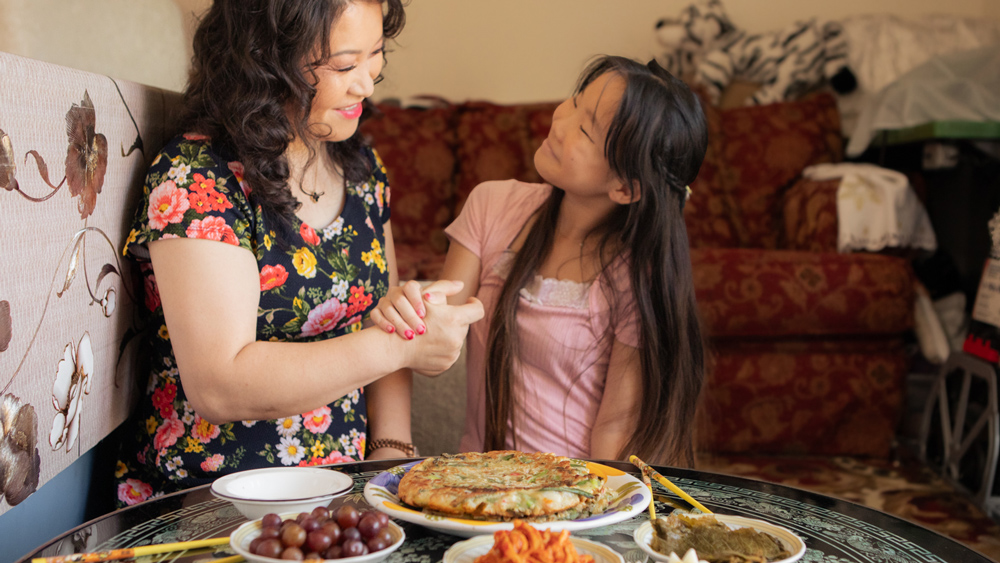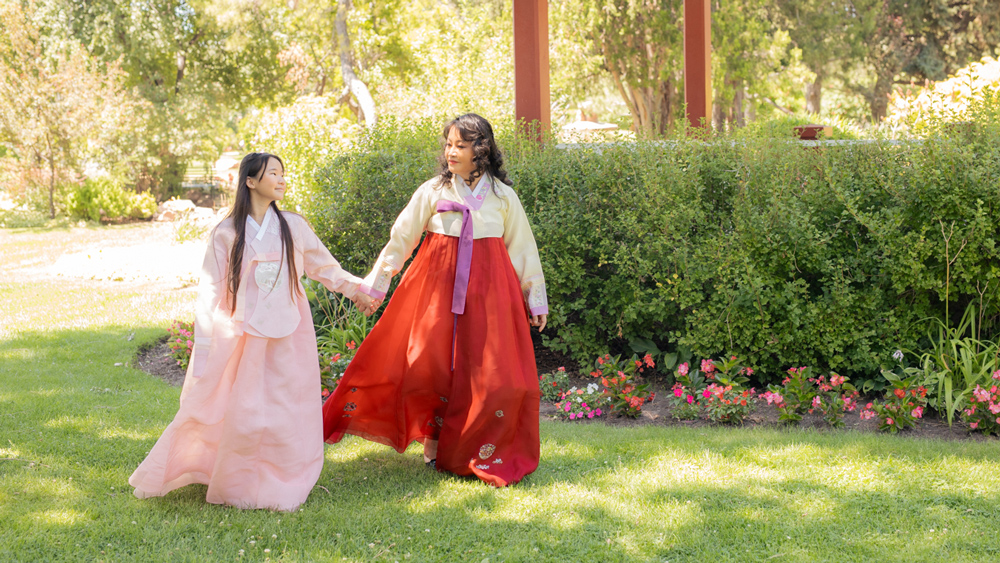Women in North Korea: At the Forefront of Social and Political Change
By Lindsey Miller
Lindsey Miller is a musical director, award-winning composer, author, and photographer originally from Glasgow, Scotland. From 2017-2019, she lived in Pyongyang, North Korea, while accompanying her husband on a diplomatic posting. For Women’s History Month, she shares a rare glimpse into the experiences of North Korean women, who are finding ways to live life on their own terms despite the circumstances.

Her name is Min Jeong*.
She’s bright, funny and has a dry and cutting sense of humour that rivals that of any professional stand-up comedian. The kind that makes you worry for the heckler in the front row.
‘Why do you keep singing? You’re terrible at singing!’ she says with a straight face to the regular punters at The Beer House, a bar in Pyongyang, before taking their glass and kindly refilling it. ‘And don’t wear those shoes, they’re ugly.’ The other punters burst out laughing while Min Jeong allows a slight silly smile to make its way across the corner of her mouth. That’s the thing about Min Jeong, she has a magnetic and honest energy about her. It was refreshing in a place where simple honesty and truthfulness felt so packed down.
Min Jeong and I spent a fair bit of time together over the two years I lived in Pyongyang. I would go to the bar mainly to just talk to her and spend time with her. She was interesting. She loved hair accessories and jewellery – an increasingly common way for North Korean women to explore self-expression. I’d show her photographs of me and tell her about my different outfits while she’d rate them. I didn’t fare very well in her opinion. I often gave her my wedding or engagement ring to try on and she’d pose with them, comparing them to other things she’d seen foreigners wear. She’d tell me about the cosmetics that she liked to wear and make herself.

One of her favourite things was a face mask which I remember involving eggs. I never tried it but she swore by it, telling me how important it was to look after my skin and reminding me that there was nothing more important than my health. Min Jeong was very bright and regularly bounced between speaking in Korean, fluent English and often Mandarin. She loved animals and we spent a lot of time looking at photographs of dogs on our phones.
Min Jeong was in her early thirties and unmarried. She’d twirl her half-tied-back beautiful shiny black hair in her fingers while telling me about how much her parents were desperate for her to ‘find a boy’. She wasn’t interested and she didn’t have much time given that she only had one day ‘off’ a week which would have been taken up in part by state-enforced self-criticism sessions among other things. Having gone on many dates, the outcomes of which she summarised with a simple wrinkled nose, she seemed to be quite content being single. It was an attitude which I was surprised to learn was shared by a couple of Pyongyang female urban elite whom I met; women who spoke openly about their lack of desire to have children, who wanted to pursue a career. This directly contradicted my understanding of North Korean women’s experiences.
But I forgot that the experience of women is diverse and North Korea is no exception.

It’s very easy to think that North Korea isn’t changing but that is not the case. To say that there have been no social changes in the country would be insulting to the creativity, tenacity and drive of the North Korean people, particularly women who continue to be a major driving force of change. Driven by necessity following the devastating famine in the 90s, ordinary women had to become more economically independent in order to survive. While North Korean men were chained to jobs in faceless party offices, women had the time to create their own economic opportunities which could feed their families and keep them alive. Even now, in spite of living in a country gripped by widespread and pervasive human rights abuses including the most extreme forms of sexual and gender-based violence, women are often the breadwinners, women are the ones driving the private markets, women are the ones winning back more agency over their own lives and futures.
I only had to go to Tongil Market to see it for myself. Every vendor standing behind every one of the stalls laid out in long rows across the indoor market hall was a woman. Every staff member taking payments from the vendors for selling in the venue was a woman. The people counting the money in the cash exchange office were women. The people unloading sacks of vegetables and meat were women. Most of the customers were women.
Through having no choice but to fight to survive, North Korean women have driven changes that few could have predicted would last.

I sit at the bar and Min Jeong passes me a cup of black tea. She starts to scroll through her phone and goes back into her own world. I think about what is going through her mind and all the things she is experiencing but cannot talk about. I think about the millions of other North Korean women with names, voices and stories to tell; who we, on the outside of North Korea, will never get to meet. I think about the world who will never get to meet this generous, kind, extraordinary woman in front of me - my friend.
Min Jeong lifts her head and looks at me,
‘You really shouldn’t wear those shoes, Lindsey. They’re awful.’ She waits a moment and that same slight silly smile starts to creep across the corner of her mouth. ‘I’m kidding. They’re only a little better than yesterday’s.’

Lindsey Miller shares more extraordinary photos and stories from North Korea in her debut book, “North Korea: Like Nowhere Else," a testament to the hidden humanity and dynamism of the people. She also joined LiNK for a virtual Q&A in 2021 and continues to be a friend and advocate for this issue!
You can stand with the North Korean people as they strive towards freedom and transform their country.
Sign the Allies pledge today!
*Name has been changed to protect the privacy and safety of the individual
Chuseok for North Koreans | No Way Home for the Holidays
Autumn is a significant season for many people and cultures around the world. It’s a period of transition and reflection, gratitude for the days gone by, and celebration of the harvest.
In both North and South Korea, this time of year is celebrated with Chuseok, or the mid-autumn festival. Also known as “Korean Thanksgiving,” it’s a major holiday that predates the division of the peninsula. Chuseok is observed on the 15th day of the 8th month of the lunar calendar, when the harvest moon shines brightest. Traditionally, people return to their ancestral hometowns to gather with family, share a variety of delicious foods, and pay respects to their ancestors.
But for North Korean refugees, there is no going back. Holidays like Chuseok can be a bittersweet time, one of both gratitude for a life in freedom and grief over being unable to celebrate with family still inside North Korea.
“The first Chuseok in the US felt very empty and lonely. It was just me and my two-year-old daughter, Mia, back then. It didn’t feel like a holiday. I had multiple emotions at the same time. Loneliness, emptiness… there were so many feelings that I couldn’t even put into words.“
– Holly, escaped North Korea in 2013
Chuseok celebrations have evolved to look a little different in North versus South Korea, and even in countries like the US where the Korean diaspora have resettled.

Chuseok Traditions in South Korea
In South Korea, Chuseok is considered the largest and most important holiday of the year. It’s celebrated over three days, during which a “national migration” takes place as people all over the country travel to their hometowns or to go sightseeing. Tickets for planes, trains, and buses are sold out months in advance, and freeways are packed with bumper-to-bumper traffic during the holiday period.
On the morning of Chuseok, families hold a memorial service for their ancestors at home, known as charye (차례). A table of food is prepared as an offering, typically featuring rice cakes, fresh fruits and vegetables, meat dishes, and the favorite meals of deceased loved ones. Families will also visit ancestral gravesites, a custom known as seongmyo (성묘), to pay their respects and tend to the graves.

From the ancestral table to large family meals, food is a central part of Chuseok celebrations. The defining dish of this holiday is seongpyeon (송편), a chewy, sweet, and nutty half-moon shaped rice cake steamed in fresh pine needles. It’s traditionally made with rice from the year’s harvest, finely milled into flour. Preparing seongpyon becomes a family activity as each piece is shaped by hand and filled with red bean paste, toasted sesame seeds, or chestnuts.
Other holiday foods include pajeon(파전), a crispy, savory pancake made with green onions; galbijjim (갈비찜), sweet and savory braised short ribs; and japchae(잡채), glass noodles stir-fried with meat and vegetables.

How Chuseok is Celebrated in North Korea
In North Korea, Chuseok is just a one-day celebration. While it is considered a key traditional holiday, its importance has been minimized relative to national holidays like the birthdays of Kim Il-sung and Kim Jong-il, and the anniversary of the founding of the Worker’s Party.
On both traditional and national holidays, North Koreans are urged to visit the statues of Kim family leaders or the Kumsan Palace of the Sun in Pyongyang, where the bodies of Kim Il-sung and Kim Jong-il lie.
It is much less common for widespread travel to take place during Chuseok due to severe travel restrictions and poor transportation infrastructure. However, these constraints have also made it so that generations of North Koreans remain in close proximity to their hometowns and relatives. For Chuseok, people gather with their nearby family members. Just like in South Korea, they’ll prepare special foods as offerings for charye, and then visit ancestral grave sites to pay respects.
After ancestral rites, festivities become a community affair with traditional food and folk games shared amongst family, friends, and neighbors. Songpyeon is also a holiday staple, but the North Korean version is made with a minced meat and vegetable filling, and are twice as big as South Korean ones. Common folk games are yutnori (윷놀이), a board game, and ssireum (씨름), or Korean wrestling.
Holly & Mia: A Legacy of Freedom
It’s been over a decade since Holly left her hometown in North Korea. But whenever she makes pajeon (파전), it takes her right back to her childhood—sitting by the frying pan and watching her mom cook, eagerly awaiting a taste. “Pa”(파) means green onion and “jeon”(전) refers to foods that have been pan-fried or battered. There are many varieties of “jeon,” made with everything from potatoes to zucchini, seafood, kimchi, and more.
Holly saw her mom cook this dish countless times in North Korea. It was an inexpensive, everyday staple, but also an essential part of the holidays. Every year for Chuseok, the mouthwatering aroma of oil and batter would draw everyone to the kitchen, where a colorful assortment of jeon was being prepared.
Holly now lives halfway across the world from North Korea, but every year during Chuseok, she sets out an offering table for charye. For hours, she prepares foods like pajeon with great care, remembering and honoring her parents and loved ones, who she can’t be with for the holidays.

In 2016, Holly reached freedom through LiNK’s rescue networks with one-year-old Mia in her arms.
Mia is now at an age where she’s able to understand some of the things her mother went through. Holly has begun to open up more about her life in North Korea, and does her best to keep their small family connected to their Korean heritage. She takes Mia to Korean language school on Sundays, and makes an effort to celebrate cultural holidays, like Chuseok. What can’t be put into words, Holly communicates through food—their dinner table is always full of delicious Korean cooking.
In 2024, Holly received her US citizenship, nine years after her resettlement!
"When I obtained my US citizenship, it felt like my escape journey was finally complete. I cried and felt so grateful to the US for giving me a new life. My greatest happiness is seeing Mia have a childhood free of the painful hardships that defined mine.”

These days, Chuseok has become a lively gathering with the many friends and neighbors they’ve met over the years! Holly gathers with other Koreans in the community, and they go all-out preparing delicious seongpyeon and pajeon. She takes great pride in wearing traditional hanboks with Mia, and explaining each dish when guests arrive. The festivities always continue long after dinner, with Korean games like jegichagi, a version of hacky sack, and yutnori, a board game.
Living in the US, Holly and Mia have been introduced to new traditions too. Just a month after Chuseok, their community gathers again to celebrate Thanksgiving with turkey and pumpkin pie, in true American fashion.

Holly still has hope that in her lifetime, she’ll be able to celebrate Chuseok with all her family and bring Mia to visit her hometown in North Korea.
We’re working towards the day when families don’t have to be separated. To date, LiNK has rescued almost 1400 North Korean refugees and their children, reuniting over 500 people with their families in freedom. As we’re helping North Koreans, like Holly, build new lives, we’re also leading initiatives to increase change inside North Korea, through advocacy, information access, and more.
Become a monthly donor and create a long-lasting legacy of freedom. Your support will rescue North Korean refugees waiting for their chance to escape right now, and fuel work that is increasing change and opening inside North Korea.




